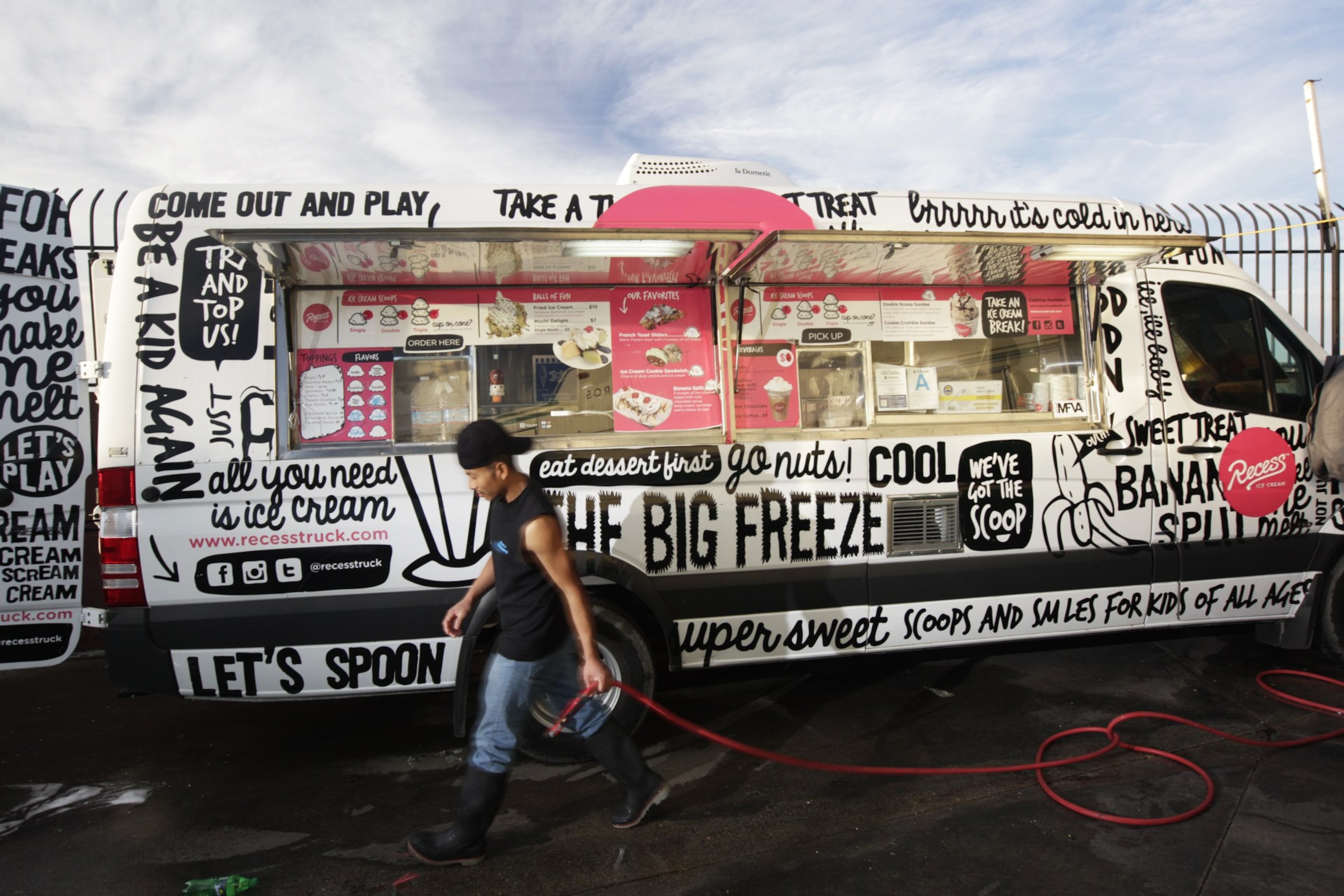
Where Do Food Trucks Go at Night?
After serving their last customers, food truck employees around the country typically have one more stop on their itinerary: a commissary. That’s where they park the truck for maintenance, cleaning, and restocking for the next day or shift.
Whether trucks are required by law to park at commissaries—as is the case in many cities—or use them for convenience, commissaries provide many services. They’ve been around for decades, working with traditional commercial food trucks, but with the rise of gourmet trucks, commissaries are in the spotlight.
While reporting on L.A.’s food trucks for National Geographic magazine, I found one of the largest commissaries in L.A., La Raza Foods, a three-acre facility in the San Fernando Valley that bills itself as the “Food Trucks Capital of the World.” Owner and CEO Sam Avedisian knows the industry well. He started driving a food truck in 1983 and opened the La Raza commissary in 1991. Today, it has 27 employees and services some 200 trucks. Those services include cleaning the trucks inside and out, garbage and grease disposal, fumigation, health inspections and licenses, repair and mechanic maintenance, propane and gas refilling, and a place to clean pots and pans. La Raza also sells catering supplies and fresh meat and produce. Gross product sales alone last year totaled roughly $9 million, according to Avedisian, who says, “Business is booming.” Indeed, the food truck industry brought in more than $800 million in revenue last year. (For more food truck facts, see our video, Food Truck Nation.)
La Raza Foods in Sun Valley is one of the two largest food truck commissaries in Los Angeles, and it wants to expand, thanks to the booming food truck business. Photograph by Gerd Ludwig, National Geographic
By staying away from city centers, commissaries can find more space and keep their prices low. La Raza is located about 15 miles from downtown Los Angeles and charges each truck $1,000 to $1,200 a month for storage and disposal services. Casablanca Commissary in the Bronx services New York City trucks. And The Commissary in Columbus, Ohio, just six miles from downtown, provides parking for 15 trucks as well as a new, 16,000-square-foot commercial kitchen for food prep.
With more and more food trucks on the road across the country, commissaries are increasingly in demand. And Avedisian is looking to expand La Raza. “Food trucks are a big industry,” he says. “They’re going to be here for a long time.”
Got a great food truck shot of your own? Take our Your Shot #streetfood challenge. But hurry! The contest ends Tuesday.





